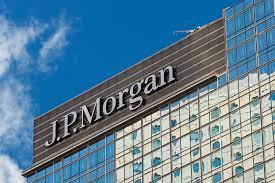April 22 – American bank JP Morgan, who underwrote initial investment in the European Super League (ESL), have been hit with a downgraded sustainability rating as integrity issues have been raised over the bank’s role in the wake of the ESL collapse.
The US bank blundered and scored a major own-goal by backing the ESL, an ill-conceived plan to change the face of European football that imploded in the space of 48 hours after being caught in an industry-wide and political firestorm across the continent.
Last month, a letter from chief executive Jamie Dimon highlighted the bank’s efforts to position itself as a leader of socially responsible and sustainable capitalism and thus be seen in a more favourable light, but executives at the stateside bank look to have been caught unaware that engaging in the murky world of European football politics could result in a PR nightmare, and worse. Ironically, Dimon had even referenced the importance of local sports teams to communities in his letter.
As a consequence of the ESL collapse, the US bank was given a lower sustainability rating. Standard Ethics lambasted both the bank and the clubs, downgrading JP Morgan from an “adequate” rating to “non-compliant”.
“Standard Ethics judges both the orientations shown by the football clubs involved in the project and those of the US bank to be contrary to sustainability best practices, which are defined by the agency according to UN, OECD and European Union guidelines, and take into account the interests of the stakeholders,” it said.
JP Morgan reportedly committed €3.25 billion to the ESL plan, with a down payment of €200 million and €300 million to each founding club at the start of the competition. However, the loan would have to be repaid over 23 years.
In their launch statement, the ESL founding clubs promised to pay $10 billion in solidarity payments, but to a select few clubs. UEFA’s current system of solidarity payments extends to the entire continent.
In his letter, Dimon wrote: “To a good company, its reputation is everything. That reputation is earned day in and day out with every interaction with customers and communities.
“When I hear examples of people doing something that is wrong because they could be paid more, it makes my blood boil – and I don’t want them working here.”
JP Morgan’s public defeat in the ESL collapse should however remain limited to reputational damages. The bank is well positioned to take any hit. JP Morgan reported a record $14.3 billion profit in the first quarter.
Contact the writer of this story, Samindra Kunti, at moc.l1745116645labto1745116645ofdlr1745116645owedi1745116645sni@o1745116645fni1745116645

